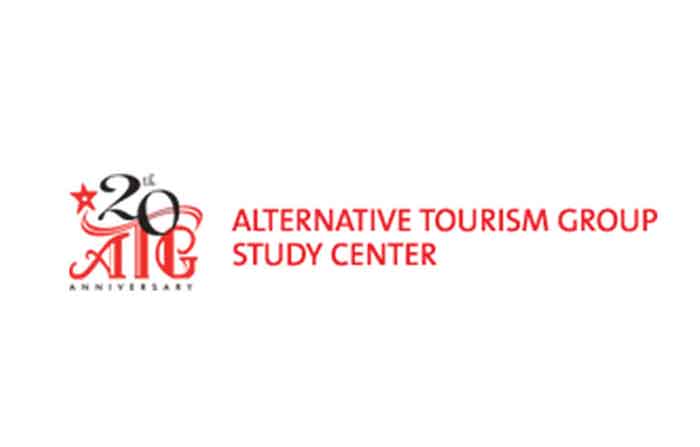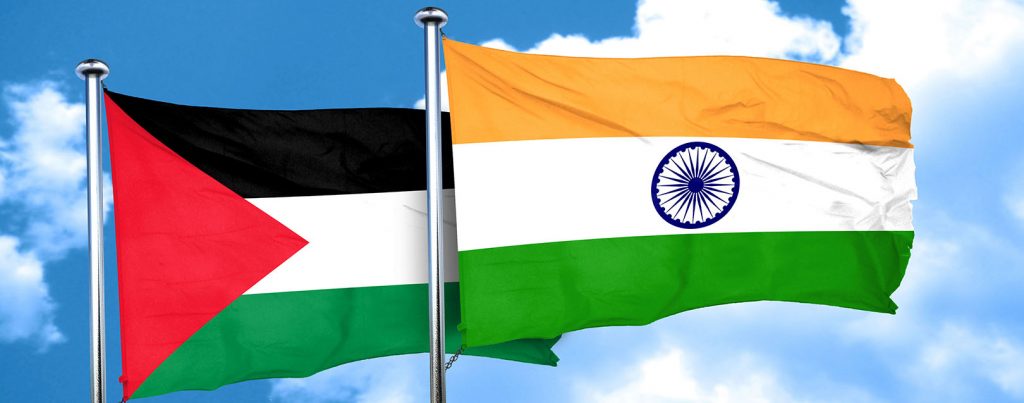
I am Eilert Rostrup, an ordained pastor of the Church of Norway, and for many years, since 1991, a warm friend and supporter of the Palestinian struggle for liberation and justice. I’ve been able to serve as a solidarity comrade through my work as International Director for the Norwegian YWCA and YMCA, and for the last 16 years as Director for the Karibu Foundation, partnering with Palestinian justice movements around the world and also with some progressive groups in Israel. Today we support the struggle for liberation and justice through ATG, Kairos Palestine, BADIL, Stop the Wall and Jahalin Solidarity.
Let me start by saying a big “Congratulations” to ATG at this belated 25th anniversary. Our journey with ATG, which for Karibu initiated its involvement with Palestinian partners, started already back in 2007 – few months after I joined Karibu Foundation, with involvement on the ATG process “code of conduct for travelers to Palestine/Israel” and some further processing and translations of the Guide Book to Palestine.
ATG has built and broadened out our understanding of alternative tourism
In our global North reality we have traditionally not really questioned our privilegded practice of tourism. While enjoing the privileges of global North accumulation of wealth (which could also be named as global theft and economic injustice) we mostly avoid questioning our right to exploit local communities and people all over the world through oursumptuous and luxorious holiday practice. It’s like a private and justified right in our stressful lives. And we enjoy the big transnationals organising this for us, with their all inclusive paccages which provide us with exactly the product we search for. We become spectators to what only fits with our needs for picturesque and interesting cultural exposures, and don’t disturb our concepts of comfort. And all the profits of our extravagancies fall back to our own tourism industries which again can continue its exploitative practice as one of the biggest transnational industries in the world.
ATG has been built on a determination that tourism should be locally owned. And ATG itself is locally owned. A grassroots initiative coming from seeing that tourism to the Holy Land was based on the ourside definition of how tourism here should be. Not supporting the local tourism industry, the local communities, and not reflecting the narrative of the people living in the tourism location. When people, traditions, culture, land, resources, foods are exploited to fit into the needs of the wealthy spectators, then the tourism location has become only a commodity. And the value of the local context and reality and people is only determined with its relevance as an object to be marketable to the outside visitors. The narrative of people, land and culture doesn’t have its own value or right.
ATG forms a strong counter-force against the global exploitative tourism industry. Very visible in this land. We see here the ugly face of corporate mass-tourism. But through ATG we also see the challenge to power as they develop alternative forms of tourism in this contexts. ATG is role-modelling pro-people tourism for many local communities around the world. I have seen this in the very central role ATG is playing in the global network named “Tourism Alert and Action Forum”- TAAF which gathers alternative tourism activists from various parts of the world.
ATG has made it imparative to critically review (theologically and politically) what we mean by pilgrimages
Tourism to The Holy Land is inseparably tied up with concepts of piligrimage. And corporate mass tourism has exploited religious pilgrimage practice, and sadly with no real protest from the churches globally.The pilgrim was a “stranger”, as is expressed through the origins of the word in Latin (‘peregrinus’ meaning ‘stranger’ or ‘foreign’). Historically pilgrims travelled as poor people without credit cards and luxury hotels.Pilgrimage, which in church tradition is a spiritual, God-searching, humble and non-resourced journey has been changed to a comfortable and distant viewing of historical sights and dead stones. So the search for encounter with the holy, the listening and non-knowledgable position of a stranger, the personal cost and contribution, are all part of the historical tradition behind pilgrimage. But our churches, in close partnership with political and commercial interest, have changed this (particularily in this land) to a spiritualisation of dead stones, the ignoring of the local narrative based on a “we know best”-attitudes, and the comfortable all-inclusive packages that avoids too much interaction with people and reality of the context.
ATG has been a vigilant voice against this. Christian pilgrimage cannot focus on dead stones but should eagerly encounter the living stones. There are no ‘holy’ places, the whole earth/creation is holy. Holy is where Christ shows himself in what is beautiful, genuine, coherent, just, relationship-building, solidary, and where the bottomless and injust suffering of people regardless of their religion or race is the living condition. The living Christ today cannot be found in places, stones or objects, but in his church and in people who suffer, fight and work for justice. And in line with Biblical teaching, a pilgrimage as a spiritual search for ‘where we experience God’s presence’ must seek out, listen, stand together with the experience of suffering people. Matt. 25.
ATG has shaped concrete pilgrimage packges which so clearly express this. The focus has been all the resources and the beauties and the splendor of Palestinian life, culture, land, spirituality and history. And all the unpolished reality of oppression, poverty, despair, failures, stigmatisation, occupation, marginalisation. Thank you, ATG! For those who are willing to move into a true pilgrimage, you have provided the opportunity for that.
ATG has contributed to understand how tourism is interconnected with politics and is intertwined with systemic global injustice
In this specific reality, in Palestine where people live under occupation and oppression by a colonial and apartheid regime, tourism has become a tool for power, control, exploitation of the oppressed by the oppressor, monopoly of the sector, propaganda to support the oppressors narrative against the narrative of the oppressed. And in this effort, the rulers cooperate well with trans-national corporate tourism industry, with churches and faith communities world wide only concerned for confirming colonial theologies and practives, and with governments making trade agreements where tourism industry is part of the commodities exchanged.
ATG has taken the time to do their political analysis. ATG has mobilised local tourism industry and local authorities to counter this monopolised exploitation through building joint action and alternatives from the ground through PIRT (Palestinian Initiative for Responsible Tourism). ATG has voiced the peoples tourism in international tourism foras whenever possible. I personally remember when we jointly worked on the OECD Tourism Committee soon after Israel was granted membership in the OECD, and tried its best to promote their monopolised tourism in occupied Palestine as included part of Israeli tourism and becoming acknowledged as such. I also recall how we travelled together in Nigeria to present to the huge Nigerian government sponsored pilgrimage industry how they were really taken hostage of Israeli monopolised Holy-Land tourism.
ATG has had a clear political analysis of tourism industry that has uncovered its close relation to global systemic injustice, underlying political agendas, and neglect of peoples’ narratives. In so many tourist contexts. And particularly in the Palestinian.
Building on the challenge from Kairos Palestine of “Come and see”, I raise three challenges:
- Make clearer demands to the global church communities. Not just encourage them, but require a number of basic criteria on all pilgrimages as a condition for the churches to approve visits as pilgrimages. A kind of branding “True Pilgrim”. Which must include: Pilgrimage must conceptualise the identification of Christ with the oppressed. Pilgrimage must relate to Palestinian tourism operators and services (accommodation, transport, etc). Pilgrimage must expose the reality of apartheid. Pilgrimage must include and document a follow-up action from the people of faith who participate.
- Continue your in-depth and systematic political analysis and action to strip the “power tourism” in the area, and document how tourism here, more than anywhere else, is a tool for domination and political propaganda.
- Continue your important work with other global South (and global North) alternative tourism activist and actors, in order to build more people centered tourism and meeting of peoples and realities globally. This is an industry in the hands of the privileged and big capital interests. It has to become an industry for and by people.
*Alternative Tourism is a Community-based Justice Tourism Group which offers alternative models of tourism based on the notion that people-to-people encounters in the context of an apartheid-controlled Palestine by the colonialist regime of Israel is the only way to enable visitors to grasp the grim realities of Palestine today. Based on the encounters with truth, large numbers of visitors who arrive in Palestine as tourists return as advocates and firm advocates of justice for Palestine











































